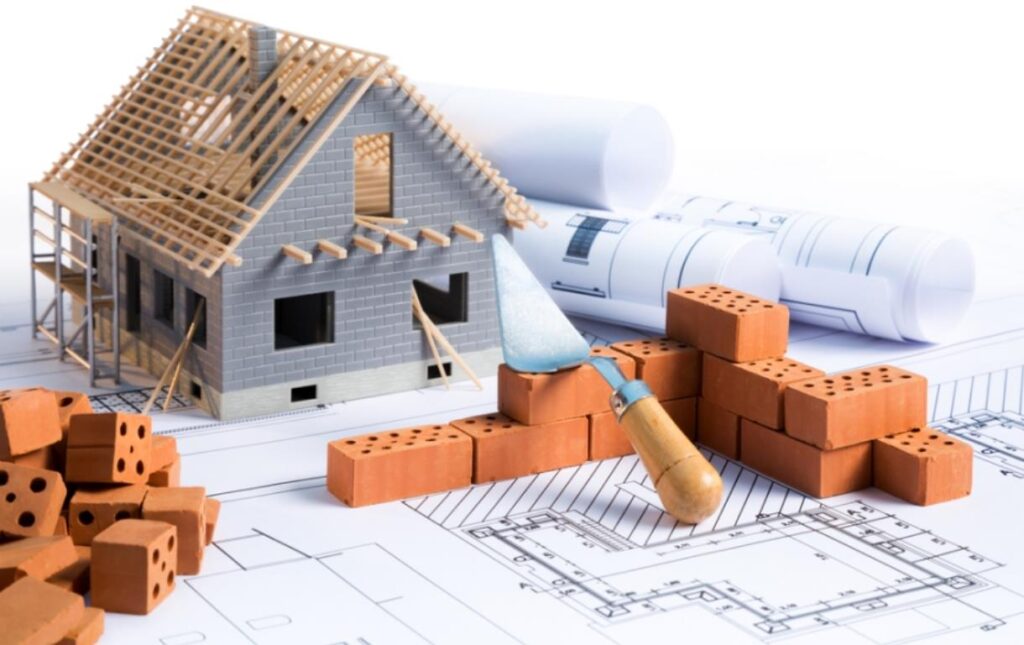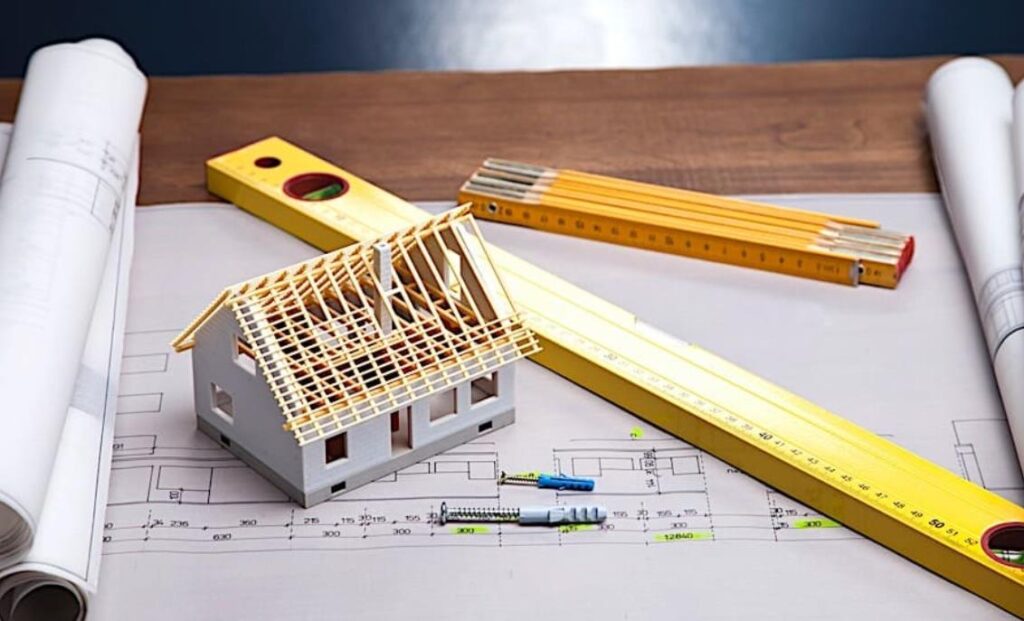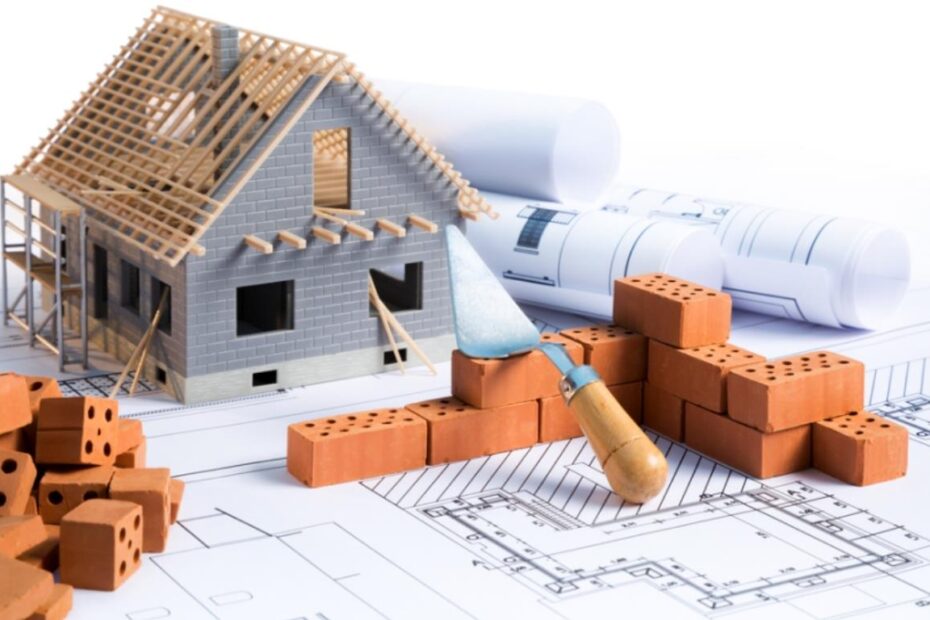Are you looking for Can You Get A Construction Loan For An Investment Property? This question often lingers in the minds of real estate investors looking to expand their portfolios. The answer is a resounding yes, but it comes with its own set of complexities and requirements.
In this comprehensive guide, we’ll delve into the intricacies of securing a construction loan for an investment property, from eligibility criteria to repayment options. Whether you’re a seasoned investor or a newbie, this article aims to provide you with valuable insights to make an informed decision.
Key Takeaways
- Yes, you can secure a construction loan for an investment property.
- Construction loans are short-term and cover various project types.
- They have higher interest rates but offer customization freedom.
- Different types of construction loans cater to specific needs.
- Qualification involves credit checks, project plans, and down payments.
Can You Get A Construction Loan For An Investment Property?
Absolutely, you can secure a construction loan for an investment property. These loans are not just limited to primary residences but are also available for real estate investments.
However, it’s essential to note that these loans come with specific requirements and terms that differ from traditional home loans. You’ll need a solid credit score, a substantial down payment, and a detailed project plan to qualify.

Additionally, construction loans for investment properties often have higher interest rates to compensate for the increased risk perceived by lenders. So, while it’s entirely possible to get a construction loan for an investment property, you’ll need to be prepared for a rigorous application process and stringent terms.
What Are Construction Loans?
Construction loans are short-term loans designed to finance new builds or renovations. Unlike traditional mortgages, these loans are not long-term solutions. They are disbursed in segments, known as “draws,” directly to the contractor as the project progresses.
Types of Construction Loans
- Construction-to-Permanent Loans: Ideal for those who want to finance both the construction and the mortgage.
- Construction-Only Loans: Strictly for construction costs.
- Renovation Loans: Perfect for upgrading an existing property.
- Owner-Builder Loans: For licensed builders who will own the property they construct.
Why Choose Construction Loans?
Construction loans offer the allure of customization. You can build your property just the way you want it. However, this freedom comes at a price—higher interest rates. But don’t let that deter you; the benefits often outweigh the costs.

Pros and Cons
Pros
- Customization
- Short-term commitment
- Only borrow what you need
Cons
- Higher interest rates
- Complex approval process
How to Qualify for a Construction Loan?
To qualify, you’ll need a good credit score, usually above 650. Lenders also require a down payment, typically between 20% and 30%. Your project plans must be detailed and approved by the lender.

Steps to Qualify
- Credit Check: Maintain a credit score above 650.
- Down Payment: Save at least 20-30% of the project cost.
- Project Plans: Submit detailed construction plans for approval.
Best Types of Loans for Investment Properties
When it comes to investment properties, three types of construction loans stand out: Fix and flip Loans, Purchase and rehab Loans, and Construction/Purchase and build Loans. Each serves a unique purpose and comes with its own set of rules.

Fix & Flip Loans
Ideal for quick property turnovers. Lenders focus on your flipping experience and the project’s viability.
Purchase & Rehab Loans
Best for buying outdated properties for renovation. The underwriting process is crucial here.
Construction/Purchase & Build Loans
These are for constructing on a new or existing lot. They are non-owner-occupied loans aimed at retail or future rental income.
Digging Deeper into Construction Loans for Investment Properties

The Financial Anatomy of Construction Loans
Construction loans are unique in their financial structure. Unlike traditional loans, they don’t require you to start paying off the principal amount immediately. Initially, you’re only responsible for paying the interest. This is beneficial as it allows you to focus your resources on the construction process itself.
However, this grace period is short-lived. Once the construction is complete, you’ll have to start making full payments, including the principal amount. This transition can be a bit jarring, especially if you haven’t planned your finances carefully. Make sure to have a robust financial strategy in place to navigate this phase smoothly.
Risks and How to Mitigate Them?
While construction loans offer numerous advantages, they come with their own set of risks. One significant risk is project delays, which can lead to increased costs and, consequently, higher interest payments. Another risk is that the final property might not appraise at the value you anticipated, affecting your loan-to-value ratio.
To mitigate these risks, always work with experienced contractors who can deliver quality work on time. Additionally, consult with a real estate appraiser to get an accurate estimate of the property’s value post-construction. This will help you gauge whether the loan terms are favorable or need renegotiation.
The Role of Contractors in Construction Loans
Choosing the right contractor is not just crucial for the quality of construction but also for securing the loan itself. Most lenders require the contractor to be licensed, insured, and have a solid track record. The contractor’s reputation can significantly influence the loan approval process.
Moreover, the contractor often interacts directly with the lender. The loan amount is usually disbursed in “draws” based on the project’s various completion stages, and the contractor is responsible for requesting these draws. Therefore, a reliable contractor can make the loan process smoother and more efficient.
The Exit Strategy: What Happens After Construction?
Once the construction is complete, you have several options. You can sell the property, especially if you took a Fix & Flip loan.
This is often the quickest way to pay off the loan. Alternatively, you could refinance into a traditional mortgage, which usually offers lower interest rates.
If you plan to rent out the property, refinancing into a long-term mortgage is often the best course of action. This allows you to leverage the rental income to pay off the mortgage. However, make sure to consult a financial advisor to choose the best exit strategy tailored to your investment goals.
The Importance of Shopping Around for Lenders
Not all construction loans are created equal. Different lenders offer different interest rates, terms, and conditions. Some might offer you a higher loan amount but at a higher interest rate. Others might offer more flexible repayment options.
It’s crucial to shop around and compare loan offers from different lenders. Look beyond the interest rates and consider other factors like loan terms, down payment requirements, and any additional fees. This will help you secure the most favorable loan for your investment property.
Is It Harder To Get A Loan For An Investment Property?
Getting a loan for an investment property can be more challenging than securing one for a primary residence. Lenders often see investment properties as higher-risk ventures, leading to stricter eligibility criteria.

You’ll likely face higher interest rates and may need a larger down payment. Credit score requirements can also be more stringent. However, the difficulty varies depending on the lender and your financial situation.
Can SBA Loan Be Used For Construction?
Absolutely, SBA loans can be a lifeline for small businesses aiming to expand through construction. The U.S. Small Business Administration offers two main types of construction loans: SBA 7(a) and SBA 504. These loans can finance building purchases and other construction-related activities.

The ideal candidate for an SBA construction loan is a business that has been renting a space and now wants to own a building. However, it’s crucial to note that your business must occupy at least 51% of the property initially, and this requirement increases over time.
Why Consider New Construction For Investment Properties?
New construction offers a plethora of advantages for real estate investment. First, you’re starting with a clean slate, meaning fewer maintenance issues and repairs. This is a huge plus for investors who don’t want to deal with the headaches of older properties.

Second, new construction often comes with warranties, providing an extra layer of financial security. Third, these properties are usually more energy-efficient, which is an attractive feature for potential tenants. Lastly, new construction allows for customization, giving you the opportunity to make design choices that could increase the property’s value.
What Are The Benefits Of Using Private Money New Construction Loans?
Private money loans for new construction come with several benefits that make them an attractive financing option. Speed is the first advantage; these loans can be processed and approved in a matter of days or even hours. This is crucial when you need to act fast on a real estate deal.
Second, they require less paperwork compared to traditional bank loans, making the process less cumbersome. Third, these loans offer flexible terms tailored to your specific needs. Fourth, they require less documentation, focusing more on the asset’s value rather than your financial history. Lastly, private money loans are transparent with no hidden fees, making them a reliable option for investors.
Conclusion
Yes, a construction loan can be a game-changer for your investment property. It offers the flexibility to build or renovate as you see fit. However, be prepared for higher interest rates and a rigorous approval process. Choose the loan type that aligns with your investment strategy for the best results.
Construction loans offer a versatile yet complex avenue for financing your investment property. From choosing the right contractor to understanding the financial intricacies, each step requires careful planning and execution. Always remember to mitigate risks and have an exit strategy in place to make the most out of your investment.
Top FAQ’s
What’s The Difference Between A Construction Loan And A Home Loan?
While both construction loans and home loans require a credit check and other financial information, they serve different purposes. A construction loan is short-term and project-specific, requiring detailed plans for approval. In contrast, a home loan is a traditional mortgage used to purchase a property.
What’s The Difference Between A Construction Loan And A Renovation Loan?
Construction loans are used for new properties with definitive project plans, while renovation loans are used for making upgrades to existing properties. After the construction project is complete, those who use construction loans typically transition into a regular mortgage.
Can You Get a Construction Loan For An Investment Property?
Yes, you can secure a construction loan for an investment property if your project plans and finances meet the lender’s requirements. Unlike some home loans, construction loans can be applied to investment properties, making them a viable financing option for experienced real estate investors.
How Can I Qualify For A Construction Loan?
To qualify, you’ll need a good credit score (usually 650 or above) and a down payment between 20 and 30 percent. Lenders will also require detailed project plans and may even want to see a team of qualified builders attached to the project for final loan approval.
A multifaceted professional, Muhammad Daim seamlessly blends his expertise as an accountant at a local agency with his prowess in digital marketing. With a keen eye for financial details and a modern approach to online strategies, Daim offers invaluable financial advice rooted in years of experience. His unique combination of skills positions him at the intersection of traditional finance and the evolving digital landscape, making him a sought-after expert in both domains. Whether it’s navigating the intricacies of financial statements or crafting impactful digital marketing campaigns, Daim’s holistic approach ensures that his clients receive comprehensive solutions tailored to their needs.









